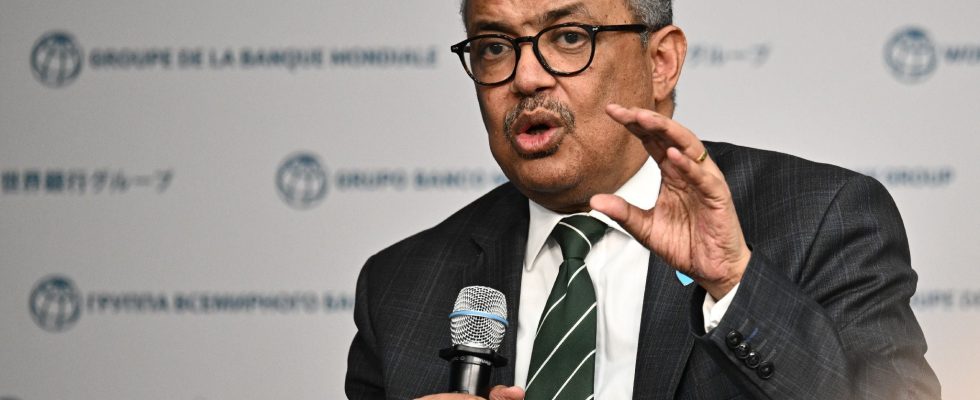This treaty cannot wait any longer. A few days before the May 10 deadline, the head of the World Health Organization (WHO) implores member countries to finally reach an agreement on the fight against future global pandemics. “Give the people of the world, the people of your countries, a more secure future. So I have only one request to make: please do it, for them,” said Doctor Tedros Adhanom Ghebreyesus to diplomats gathered at WHO headquarters in Geneva, Friday May 3.
For two years, the 194 countries of the WHO have been working on a draft binding international text to prevent the recurrence of a pandemic as violent as that of Covid-19. Or, at least, to be ready when the next health disaster hits the world. To do this, the treaty must in particular allow the transfer of technology and know-how, and provide the necessary financing and tools to developing countries so that vaccines, tests and medicines can be produced on their territories.
The marathon of the latest negotiations began on Monday April 29, in the hope of finding a compromise before May 10. The aim is to arrive at a text ready for adoption by the annual assembly of WHO member states, which begins on May 27. But halfway through the negotiations, many differences remain.
Ensuring equitable access to weapons against viruses
The 194 member countries had already failed once at the end of March, the original deadline to reach an agreement. The main disputes revolve around fairness in access to data on new pathogens, and on access to vaccines and other drugs developed from these discoveries, their equitable distribution and the sharing of the means of producing them.
European countries are calling for more money to be invested in epidemic prevention and monitoring. While China is accused by many specialists of having delayed too long in sharing information on the rise of Covid-19 in December 2019, the United States, for its part, is calling for a guarantee of sharing as quickly as possible. data on the outbreak of any new unknown disease. African and developing countries are calling for the sharing of know-how and the establishment of processes allowing them equitable access to tests, vaccines and treatments.
Alongside the African group, an equity coalition is trying to ensure that developing countries do not find themselves left behind again, as was the case during Covid. The Pathogen Access and Benefit-Sharing System (PABS), endorsed by Article 12 of the agreement, constitutes the main point of debate, monopolizing two of the five days of negotiations for the ‘moment. As of Monday, April 29, African Union health ministers committed to obtaining “legal certainty for users and providers” of PABS, and called for an international financing mechanism with new, sustainable and sustainable funds. substantial.
Article 12.3 contains the agreement’s most concrete offer: 20% of pandemic-related health products would be allocated to the WHO for distribution – 10% as a donation and 10% at cost, reports “Health Policy Watch”, the independent international medical monitoring association. This measure would allow the WHO to redistribute resources equitably, without electoral or political bias on the part of leaders of rich countries. But a crucial question remains to be decided: will the 20% be the ceiling or the floor?
Focus on areas of agreement
During the last session, the negotiators were unable to find consensus in the face of an illegible text, due to dint of amendments. In order to be sure to quickly produce a binding treaty on the main points, they chose, this time, to work on a new watered-down draft text, leaving the most delicate points which will be debated over the next two years. The 37 articles of the draft agreement are therefore examined in turn, with the countries’ negotiators dividing into working groups to try to find a consensus.
Countries are starting to find common positions, co-chair of the talks Precious Matsoso said at a press conference on Friday (May 3). If discussions on certain articles of the draft text “have progressed significantly”, the fact remains that “the window of opportunity is closing”, she warned. “I know that the process has been difficult and sometimes painful, and that it is not over. I know that you have all been led to make compromises that you did not want to make,” acknowledged the assembled diplomats. head of the WHO, Tedros Adhanom Ghebreyesus.
Negotiators could be spurred by the news on the front of the avian flu epidemic which has been wreaking havoc again since 2020. The H5N1 virus recently infected herds of cows in the United States. A first. Although, for the moment, no cases of human-to-human transmission have been recorded, the intense circulation of H5N1 and its ability to jump from one species to another is of great concern.
